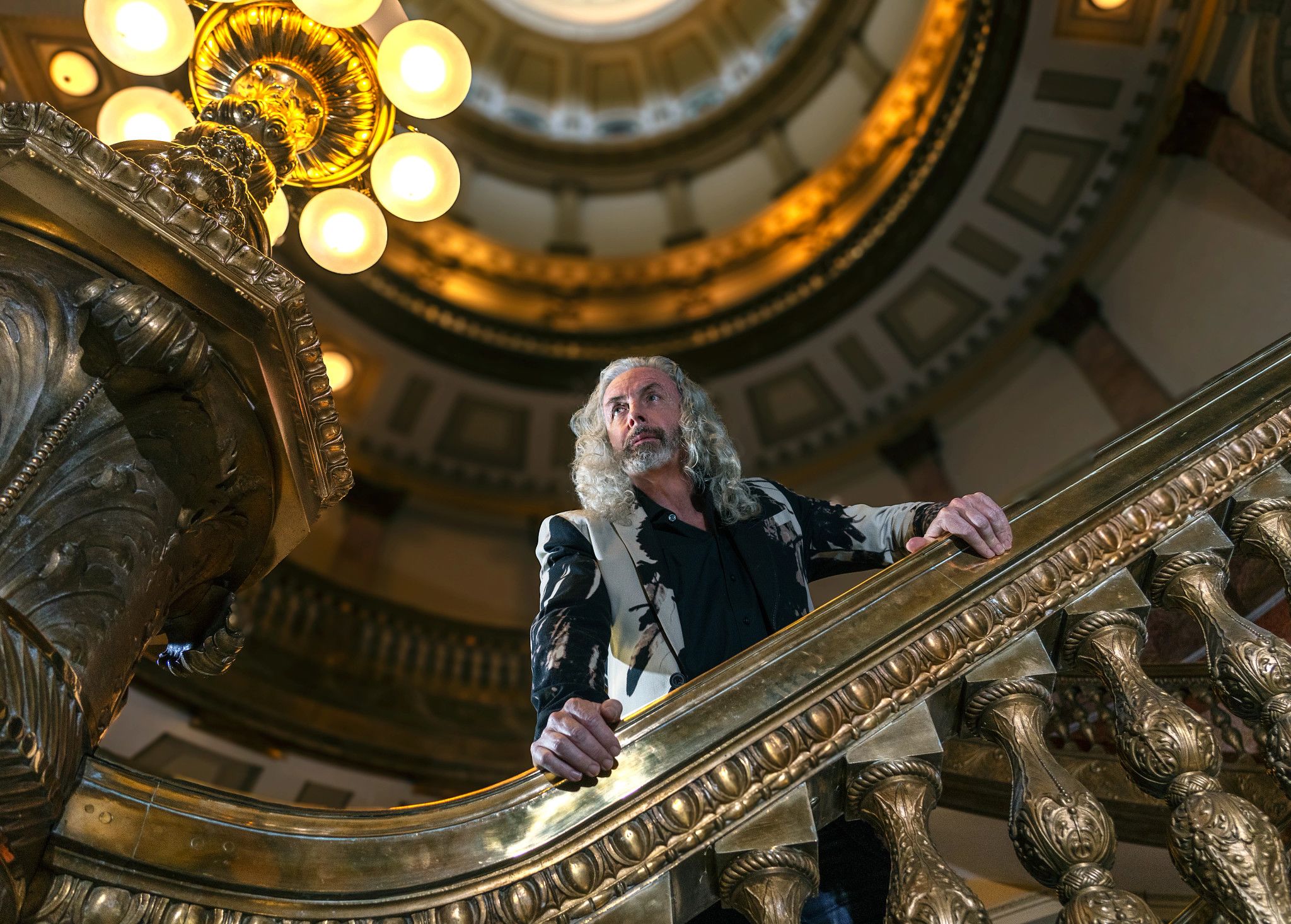Compassion on K Street
Named one of Politico’s most powerful people on race, culture and politics in 2023, Tom Rodgers has spent decades fighting injustice in Washington, D.C.

Tom Rodgers (BA ’83, JD ’86, LLM ’88) is many things: strategist, advocate, lobbyist and whistleblower—to name a few. “I see something wrong, and I act on it. I see people in pain, and I act on it,” Rodgers says. In practice, he says. “I take ideas, votes and money, and I apply them to moral and ethical problems.”
Rodgers, a member of the Blackfeet Nation, has worked the bustling streets of Washington, D.C., for decades and founded his own firm, Carlyle Consulting, in 1994. In the late 1980s, after completing his law degree as well as a master of law in taxation at DU, Rodgers got his start as a clerk in U.S. tax court, before working as a staffer for former Senate Finance Committee Chairman Max Baucus (D-Mont.) and later as a tax advisor on former Sen. John McCain’s (R-Ariz.) 2000 presidential campaign. In the early 2000s, he played a key role in exposing the corrupt practices of lobbyist Jack Abramoff, who eventually pled guilty to defrauding Native American tribes of millions of dollars.
More recently, Rodgers brought members of the House of Representatives together to advance cannabis legalization, combat Native American voter suppression, protect water rights and build support for the therapeutic use of psychedelics, finding seemingly unlikely bipartisan support from Reps. Alexandria Ocasio-Cortez (D-N.Y.) and Dan Crenshaw (R-Texas).
Rodgers’ roots, however, are about as far away from the nation’s capital as you can get. “I literally grew up in the middle of nowhere,” he says, “but it was a childhood of possibilities.” He says his upbringing in Glasgow, Montana—with its endless skies, seas of wheat and frigid winters—sparked a drive to right societal wrongs and bring people together.
“I had a mother—who was my North Star—who was all about empathy, compassion and grace. And I had a father who was all about work ethic and questioning authority,” he says. “It was an incredible cocktail.” Eager to see more of the world, Rodgers chose DU for college—Denver was a new city for him, but it was close enough to go home on breaks. He liked it so much that he earned three degrees here.
“DU set me on a lifelong quest of learning what I don't know and meeting people who fill my soul up.”
Rodgers then set his sights on Washington. When he arrived, he saw how major decisions get made that impact all citizens—even those who weren’t represented. “But apathy is not a solution. Absence is not a solution. You have to be in the room, and you have to have somebody advocate for you,” he says.
His diverse portfolio of work reflects this compassion and commitment to justice: fighting human trafficking and the opioid epidemic, working to establish a wildlife sanctuary outside of Yellowstone National Park and undertaking a decade-long effort to rename Wyoming’s Mount Doane to First Peoples Mountain. The mountain was originally named after a U.S. cavalry officer who played a leading role in the 1870 Marias Massacre, which killed nearly 200 Native Americans.
Above all, Rodgers never stops working to ensure Native voices are heard. In this election year, he has organized a Native get-out-to-vote effort with tribes in Nevada, Arizona and Montana. The tribe with the highest voter turnout will win a bison bull named Reckoning, named after the dictionary’s definition of reckoning as “accounting for past injustice,” says Rodgers.
He sees compassion as the driving force in his life. “I see it as concentric circles. Extend outward from your being, extend outward from your family, extend outward from your friends, extend outwards to your community, extend outward to your state, to your country and essentially to all of mankind,” he says. “Then you will have had a life worth living. And most importantly, a life worth remembering.”

